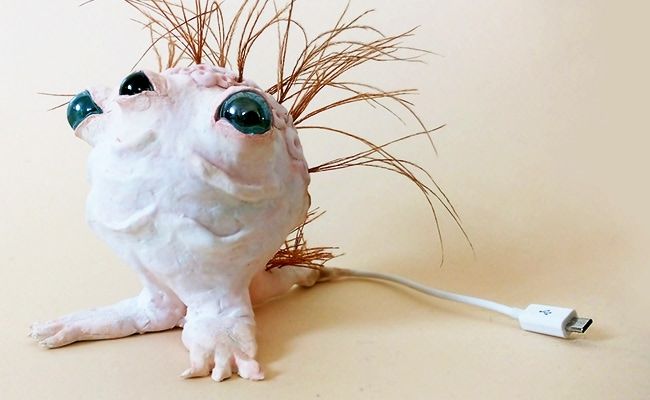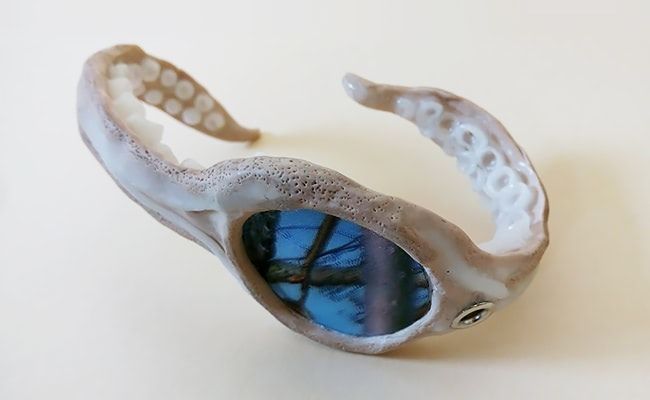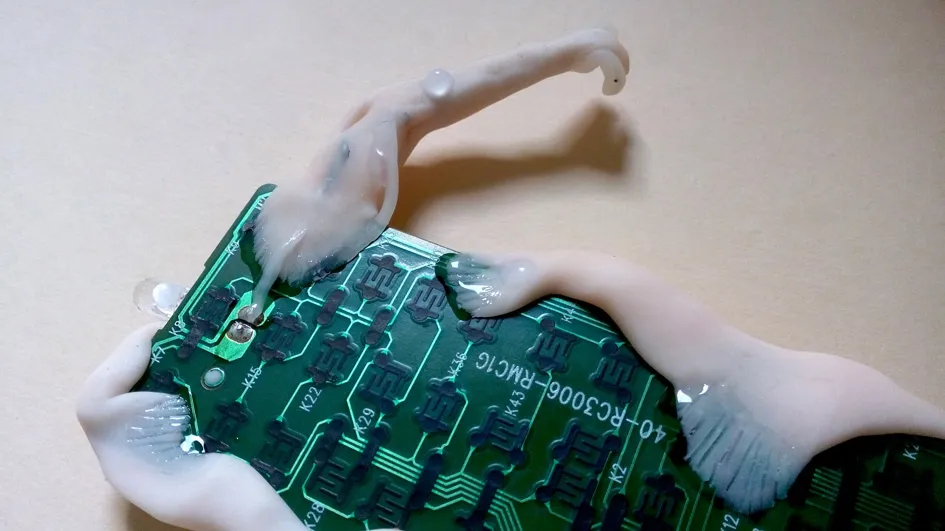Humans have been manipulating living things for thousands of years. Examples of early biotechnologies include domesticating plants and animals and then selectively breeding them for specific characteristics.
Biotechnologies vary in application and complexity. It involves making useful products from whole organisms or parts of organisms, such as molecules, cells, tissues and organs. In the late 20th and early 21st centuries, biotechnology has expanded to include new and diverse sciences such as genomics, recombinant gene techniques, applied immunology, nanotechnology, and cell therapies.
As our knowledge and capability in biotechnology increases, so do the potential benefits. However, while the intention behind new biotechnologies is to benefit society, determining what impact a particular biotechnology may have is still complex, and with that, the practice of design is changing along.
Today, we see large tech companies (such as Alphabet / Google, Amazon, Tesla) making huge investments in biotech; what if these companies will develop commercial products using biotechnology?
We caught up with NNN member Nicole Spit for a thrilling vision of a future with biotechnology. As designer and founder of Studio Dáárheen, Nicole is researching trends and technological advancements that will shape the future of product design.
Next week, on 4 June, she will present her ideas during an Expert Talk at Cube Design Museum, and you are invited.
Biotechnology is a relatively new phenomenon within the design discourse. Where does your fascination with biotech come from?
During my trend research work as a product designer at a design agency around 2003, I came across a website where you could order pieces of DNA code as modules that could be combined. This fascinated me endlessly. It was a mix of personal interests. Biology had always been one of my favorite courses at school and my dad was a chemist, so the subject was already close to my heart. At the design agency, however, technology was mainly associated with mechanics and traditional ways of production. Very pragmatic, which did not trigger my imagination as much as biotechnology does.
Designing from and with living material has been instigating interesting philosophical questions. Biomimicry, which means we are inspired by nature’s intelligence in design, is incredible. And even better; (re)designing living material. But do we have enough knowledge as humans to do good? Are we considering the impact of our actions? I was occupied by it.
The media attention for biotechnology increased over the years, and developments sped up. I noticed my excited reaction to each new invention within biotechnology and started to predict the next steps. During trend research in 2015, I chose biotechnology as the most important and promising technological development of the future. Aside from new technological possibilities, trend research is exploring the drives and values of people and how they change over time. Even though healthcare technology offered incredible possibilities for biotech, I was more interested in the opportunities for (product) designers. What could they do with it?

I wanted to visualize these ideas in objects, because in my opinion theory is less appealing than 3D objects. Those speculative 3D objects are meant to be conversation starters. That is why they are somewhat over the top and caricatural, yet still they are based on scientific articles about the current possibilities of biotechnology. I am a visual thinker, and using an object is a way to communicate ideas very quickly. It creates a vibration in your brain.
Why is it important to create awareness of biotechnology right now?
In the case of awareness, it’s mostly about synthetic biology; the editing of DNA of living organisms. Regular biotechnology is important because we are increasingly aware of pollution and damage that we do to our earth. We have to think about how to wisely deal with nature and living materials, and how we can apply biotechnology.
With synthetic biotech and especially the relatively new development of CRISPR cas9, which enables us to modify DNA, the developments are continuing with such a speed that we can barely grasp the consequences of it. Political decision-making is behind on track. Science is rumbling forward, and that is good, but we need to have the moral discussion about potential ethical objections and ecological dangers. People need to be aware of potential consequences, because eventually politics will determine its progression. People are able to establish their own opinion and, to a certain point, influence politics.
We need to have the moral discussion about potential ethical objections and ecological dangers.
Additionally, scientists in the field of biotechnology seem to be unaware of the influence of synthetic biotechnology. That’s why it seems good to me that other disciplines are interfering and starting the discussion. As designer, I want to show to those scientists the potential applications of biotechnology for artists and designers. Yet I also believe that everyone should add their voice and perspectives to this debate, including sociologists, philosophers, policymakers and medics, including the hairdresser around the corner. Essentially everyone, because it will have global effect on our environment.
What is your take on ethical objections against biotechnology?
I understand the ethical objects and there are many. Still, I think we should carefully proceed to advance biotechnology. As our knowledge increases, we will encounter potential dangers and issues, which is also where solutions can be found. We have to engage in a discussion about what we find desirable and what not. That is why we all have the responsibility to think about it and form our own opinion.
Then, we can step by step allow a little more by carefully opening up the policy. New advancements have to be extensively tested and measured in labs. Scenarios have to be developed and models have to be tested. What if this goes wrong? What if this element reacts to another element? How are people going to use it? And which people?
We will not be able to predict everything, because it is an unpaved path. It is fascinating to me that, when we turn off certain genes and have found solutions to undesired pieces of code, other pieces that were unaccounted for will turn on again. It’s a case of trial and error, but we have to do it in a way that is as safe as possible, and within the walls of the lab.
Simultaneously, the societal debate has to be set in motion. What do we think about designer babies? Are we allowed to erase certain diseases through modification? Who will have access to the knowledge and tools? Is open source desired or dangerous?
I believe that there are incredible possibilities with biotechnology and that lots of doors will open towards new knowledge, which will affect other fields of knowledge too. I mainly see new possibilities.
How can we make sure biotechnology is a humane technology, and not forget about the human factor?
This can be done by including people from all kinds of fields, and establish multidisciplinary teams of microbiologists, designers, sociologists, ethicists and medici. By making sure that money is not be the prime interest; a risk that could be reduced by open source knowledge. By valuing the opinions and objections of uninitiated people. By really discussing, which means to prepare arguments, attentively listen to the perspectives of others and adjust your own arguments accordingly. This is something that we seem to have unlearned in our society. By philosophizing. By establishing a global ethical code, which for example includes that for each biotechnological assignment, the producers are obliged to explain how it helps people and to whom it may be harmful. By keeping profits within a specific margin. By obliging the application of a biomarker, by which the creator of a product will always be known. By the establishment of an independent institute of supervisors.
The difficulty that remains is that policy and protocols are defined by culture and region, which makes it hard to establish global consensus.
What is currently the most important effect of biotech on the planet?
With synthetic biology, you can create changes at DNA level that may affect the cell or the organism. It can be hereditary. A modified cell or organism could multiply, and the modification could recur after generations. If you see DNA as a long string of function codes, you may remove the undesirable pieces of code and replace them by desired pieces. The undesired or desired pieces could return for generations and merge with other DNA.
And even more, we have to deal with the expression of code. It may be present invisibly, or it may be clearly present in phenotypical characteristics. We may be able to decide which characteristics we would like to see, at all organisms. But what are the immeasurable side effects? What is the global influence? It may change or destroy whole ecosystems. The big question is, what is desired or undesired? And for whom?
So what would be the desired effect of biotech on the planet?
It is hard to define what should be the influence of biotech on the planet. Restore the damaged ecosystems? Make animals and humans resistant to the negative influences that we ourselves, even though unconsciously, created? Make ourselves resistant to radiation? Banish cancer? Extent the lifespan of people? Everything in nature is connected and mutually influential. It is an incredible, but hugely complex system. Organisms already have a great power of accommodation. Will humans taste defeat if we do not interfere?
I believe biotech helps us to gain knowledge around our composition on cell level. If we are, for example, able to understand why certain genes are activated when we switch off others, we will be able to get to the bottom of this mechanism that will teach us a lot about ourselves. With biotechnology, we will be able to move out of Plato’s cave.
With biotechnology, we will be able to move out of Plato’s cave.
In your talk, you will dive into our current society in which new (bio)technological developments require a change in attitude of both consumers and producers. How are we going to make this transition successful?
We live in an era of transition and rising awareness. Because of, for example, the greenhouse effect and the plastic soup in the ocean, we are increasingly aware of the damaging effect of humankind on our own ecosystem. We deliberately question ourselves whether the uncontrollable growth of our consumption society should shrink and be converted into a society of quality. There is a huge desire for meaningfulness and authenticity.
Products that are produced with biotechnology, will have to be demonstrable safe and ethically justifiable; produced with respect for our environment, sustainable and actually contribute to the use and comfort of the consumer. Additionally, products have to be carefully designed. The consumers will need to have a closer bond with the product, because the short-term consumer society is obsolete. Unless the product can be recycled. In that case, it might help that a product needs regular maintenance, care or repair. Think about living products, that require care and simultaneously fulfil our desire for new rituals. This is a new variation of Rietveld’s statement “consuming is a verb”. There needs to be a debate on purchasing and usage. The role of the producer is not simply to deliver the physical product anymore, but also to inform and to repair. This can lead to new business models.

In your talk, you will also elaborate on 'the big 5' (Apple, Alphabet, Microsoft, Facebook and Amazon) that are making giant investments in biotech. Are commercial biotech products a dream or nightmare?
At first sight, this is a nightmare. I assume that during the production process, there will be no attention to ethical values, because profit and power are the incentives. And because the technology is continuously developing, there will be ways to make huge profits from it. Additionally, they will neglect the importance of safety, because it costs money and time. They will lobby for it by supporting political campaigns or play into ego and power. We can already see it in a lot of areas; the big 5 don’t know how to handle their responsibility. Think about data leaks (Cambridge Analytica), interference with elections, the distribution of fake news, absurd patents and the cover up of safety risks.
Their biotechnological products that arrive on the market, may be unexpectedly unsafe. For example in the case of BioTronicols, which is a term that I made up to designate products in which electronics and living cells are integrated and communicating. If two BioTronicols are combined, will they be able to exchange DNA, contaminate each other or pass on genetic material? Will they be able to contain hidden, inactive pieces of DNA? It is similar to the original analogy of a virus, which turned into a computer virus and now transitions back into a hybrid virus. What happens if your BioTronicol will deteriorate? Or when it forms a consciousness? What if it arrives at the market without a biomarker, and no one will know who created it? Or, what if the biomarker in itself has a different function?
It is possible that genetically manipulated butterflies with logos on their wings will be applied as instrument for marketing. Do we want to be confronted with a company logo on a living organism, flying around in our garden like a subtle marketing tool?
Do we want to be confronted with a company logo on a butterfly, flying around in our garden like a marketing tool?
After the application of biotech has become more mainstream, eventually people will use it mindfully and more altruistically. It will be a process of trial and error. Eventually, I expect great products that can help us on a lot of levels.
What is the lesson that you want people to take along?
That we have to continue scientific biotechnological research, because I believe there is a huge source of knowledge waiting for us to discover. It is important that a variety of disciplines bring their knowledge to the table. All of us have to engage in the ethical discussion on the usage of biotechnology. We have to guard our safety and be aware of the potential huge influence on our environment. Finally, product designers may think differently about it than biotechnologists do and will thus use it differently. Let’s inspire each other.
The Expert Talk ‘NeoBio, a perspective on the influence of biotech on product design’ is part of the IMPACT!-Programme and the Nature exhibition at Cube.


Comments (0)
Share your thoughts and join the technology debate!
No comments yet
Be the first to share your thoughts!